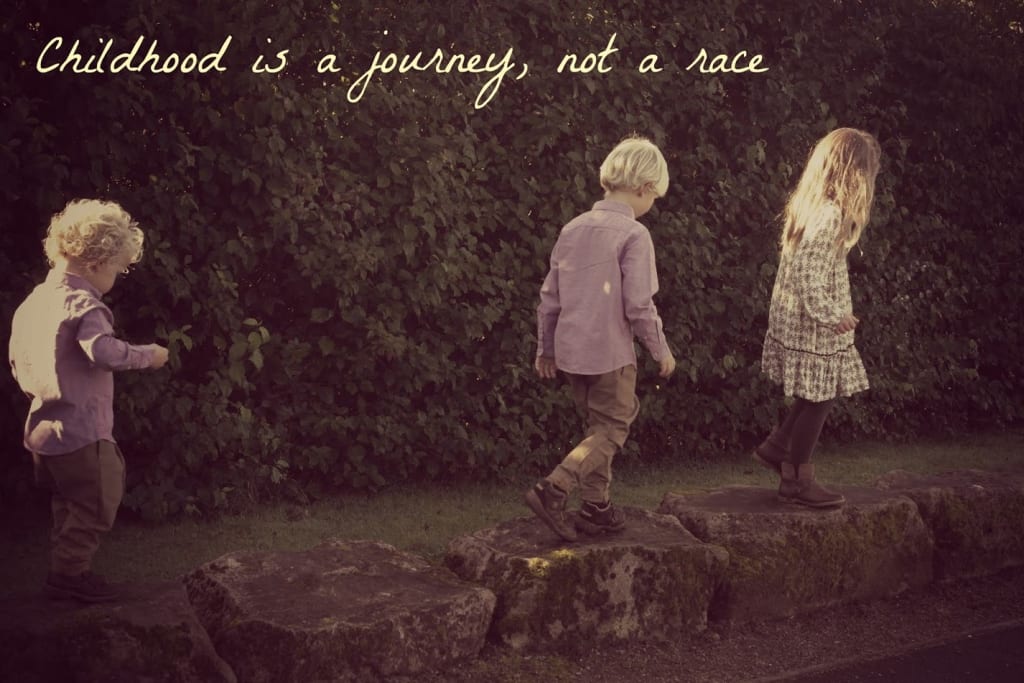Teaching Children Resilience: 4 Strategies to Develop a Growth Mindset
Never, ever give up—the words every child should remember.

"I'm rubbish at spellings... I never get them right." These words have been bouncing around in my head today after my six-year-old blurted it out during her morning practice. I know she can do it, and she does very often do well in her tests. But all too often I see her becoming frustrated and angry at herself for not being able to get them right as quickly as she would like.
Children are expected to do a lot in school these days. Tests upon tests are thrown at them from a very early age. My daughter, for instance, will be taking her year two SATS at the end of this academic year and will be given a level based on the outcome of these tests. Each week, she is sent home with a list of spellings and a set of maths tasks which are tested the following week. As a teacher, the responses I got from chick six are all too familiar. Children become easily discouraged when they are faced with a stumbling block and are resistant to re-visiting the challenge in fear of repeated failure. They worry that they are "not good enough" and therefore won't always try again. They believe that being "good" at something is a fixed state which they cannot control. In psychology, this is called "fixed mindset."
There will be, however, children who do not become easily discouraged and instead bounce back from a given challenge, looking for a way of doing it better the next time. They understand that, in order to become "good" at something, practice and perseverance are required. Indeed, this way of thinking is called "growth mindset" (GM) and instilling this way of thinking early on can create a more resilient individual. GM is about having the ability to view intelligence and ability as changeable, insomuch that we can be better at any given task through persistence, practice, and a willingness to learn from mistakes.
The question is, how do we help our children become tuned into growth mindset thinking rather than fixed mindset? I've been doing a little research into it recently, and here is what I have come up with:
Do not let a failure define you.
Thomas Edison once said, "I have not failed, I've just found 10,000 ways that don't work." Children need to be taught to enjoy a challenge. They need to understand that failure is not the end, it is simply part of a longer journey. It is about helping them to know that there is always a different way to try something, and it's about seeking after that sense of accomplishment when you do finally succeed.
The motto in our house is, "When do we give up? Never!" Children need to be encouraged to be resilient. It is commonly known now that the brain adapts to new information and practice by creating new connections. Therefore, telling the children that practising is actually helping them to grow their brains will help them see the challenge positively. If they are struggling, they should see this as a sign that their brain is learning and adapting.
Set high expectations.
Common belief holds that setting lower expectations for children will help to raise their self esteem, ie: "not to worry, let's try an easier one." But this is not actually the case. You've most likely heard of the term "self-fulfilling prophecy?" Giving children high expectations is just that. If they think that you know they can do it and believe in them, it fills them with self confidence and impacts on their behaviour, belief, and final outcomes.
Focus on a role model.
Most children will have someone they look up to and admire—be it an athlete, artist, or musician. Use these individuals to model the "road to success." It is easy to view a talented person as "born that way," however, in most cases, it has taken years of practice and effort to get to that point. Talk to the children about the individual's story. How often did they practice? Did they face setbacks? How did they overcome them? How did they get to where they are now?
Celebrate the mistakes.
In school, there are always the children who never raise their hands in class because they are so worried that their answer is wrong they become afraid to even try. Everyone makes mistakes—no matter what your age, you will never stop making them. Children need to understand this at an early age. Celebrate those mistakes. After all, "mistakes are proof that you are trying." Use them as learning opportunities, don't let them feel embarrassed about it.
With the ever increasing number of tests in schools, there is no way of getting away from the pressures and demands placed upon children. It is up to us as parents and educators to equip our children with strategies that will not only serve them in the coming years of learning, but also into the rest of their lives.
About the Creator
Daisy Willand
A lover of nature, art and dance.






Comments
There are no comments for this story
Be the first to respond and start the conversation.